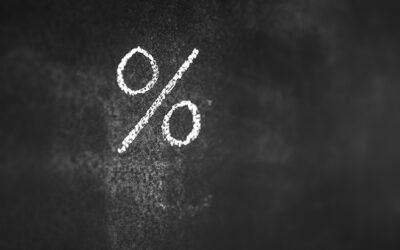
“Everyone realizes that the pandemic shut down the country earlier this year, causing a “significant decline in economic activity.””
On Monday, the National Bureau of Economic Research (NBER) announced that the U.S. economy is officially in a recession. This did not come as a surprise to many, as the Bureau defines a recession this way:
“A recession is a significant decline in economic activity spread across the economy, normally visible in production, employment, and other indicators. A recession begins when the economy reaches a peak of economic activity and ends when the economy reaches its trough. Between trough and peak, the economy is in an expansion.”
Everyone realizes that the pandemic shut down the country earlier this year, causing a “significant decline in economic activity.”
Though not surprising, headlines announcing the country is in a recession will cause consumers to remember the devastating impact the last recession had on the housing market just over a decade ago.
The real estate market, however, is in a totally different position than it was then. As Mark Fleming, Chief Economist at First American, explained:
“Many still bear scars from the Great Recession and may expect the housing market to follow a similar trajectory in response to the coronavirus outbreak. But, there are distinct differences that indicate the housing market may follow a much different path. While housing led the recession in 2008-2009, this time it may be poised to bring us out of it.”
Four major differences in today’s real estate market are:
- Families have large sums of equity in their homes
- We have a shortage of housing inventory, not an overabundance
- Irresponsible lending no longer exists
- Home price appreciation is not out of control
We must also realize that a recession does not mean a housing crash will follow. In three of the four previous recessions prior to 2008, home values increased. In the other one, home prices depreciated by only 1.9%.
Bottom Line
Yes, we are now officially in a recession. However, unlike 2008, this time the housing industry is in much better shape to weather the storm.
To view original article, visit Keeping Current Matters.
3 Trends That Are Good News for Today’s Homebuyers
As the market has cooled this year, some of the intensity buyers faced during the peak frenzy of the pandemic has cooled too.
Taking the Fear out of Saving for a Home
If you’re planning to buy a home, knowing what to budget for and how to save may sound scary at first but a trusted real estate professional can help.
What’s Ahead for Home Prices?
The housing market is shifting, and it’s a confusing place right now. Let’s connect so you have a trusted professional to help you make an informed decisions about what’s happening in our market.
The Emotional and Non-financial Benefits of Homeownership
If you’re looking to put down roots, homeownership can help fuel a sense of connection to the area and those around you.
The Cost of Waiting for Mortgage Rates to Go Down
As mortgage rates rise, they impact your purchasing power by raising the cost of buying a home and limiting how much you can afford.
How To Prep Your House for Sale This Fall
Taking the time upfront to prep your house appropriately and create a solid plan can help bring in the greatest return on your investment.





